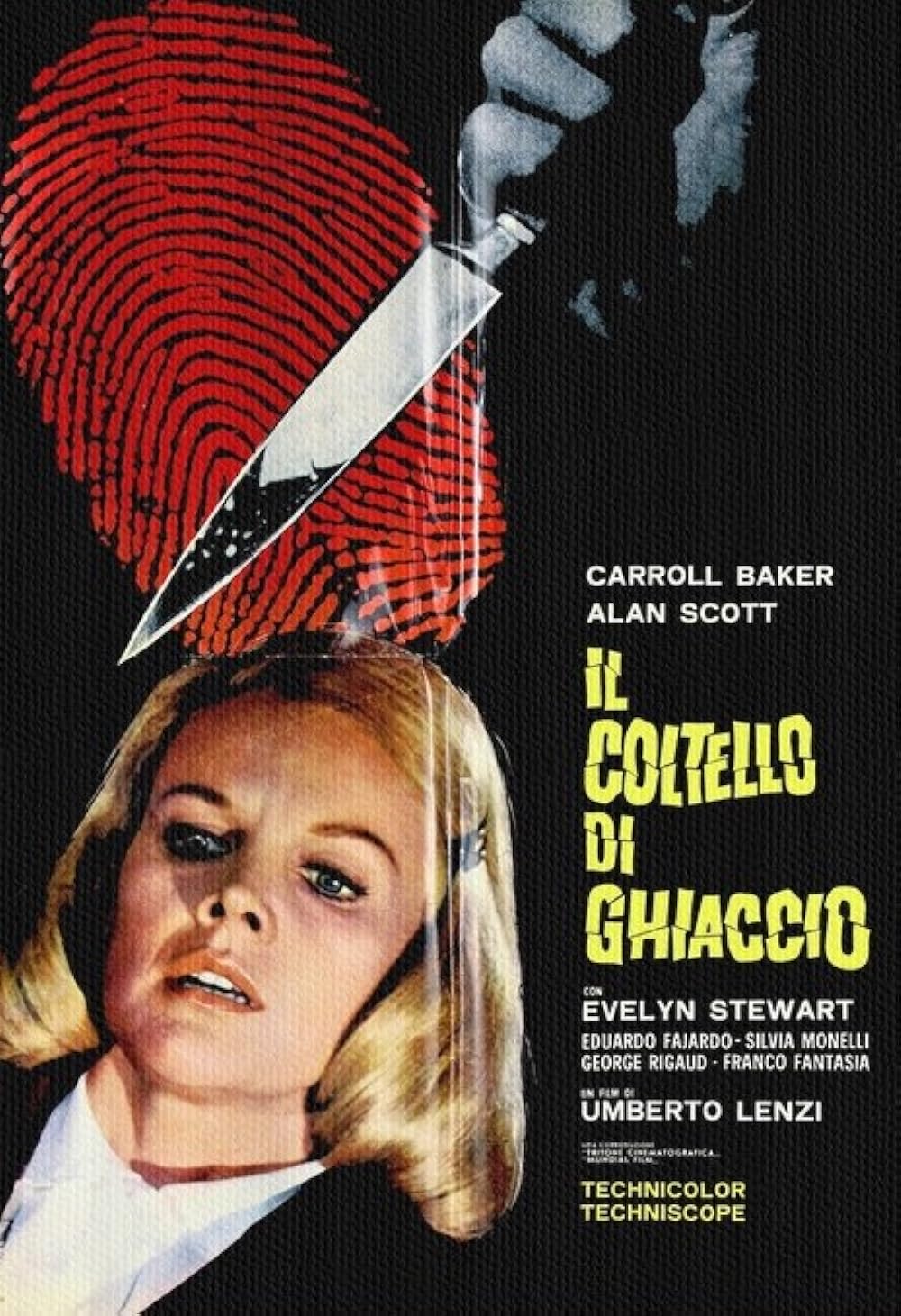After a horrific opening titles sequence set to a real bullfight (so no, Umberto has not gone soft) we meet Martha, a mute woman traumatised by witnessing the death of her parents in a train crash many years previously. She overcomes a lifelong fear of trains to go to meet her cousin, Jenny, at the station. Jenny is a famous opera singer, and the two girls reminisce about their youth together and host a birthday party for a local child. But that night, Jenny is killed. Then the housekeeper is killed. Then the local child is killed. Is the deranged drug-addicted English satanist hippy who's roaming around the graveyard the guilty party? If this was real life, probably yes, but this is a giallo, so he's too obviously guilty to be guilty. But who is the killer - is it Martha's uncle, who is Jorge Rigaud and thus a bit old and suspicious? Is it the local doctor, who seems to fancy Martha but keeps coming up with convenient excuses to leave just before people get attacked? Is it the creepy, graveyard-loving chauffeur Eduardo Fajardo? Or, is it none of the above?
(SPOILERS) It's none of the above. Yet again Lenzi comes up with a decent twist which time has rendered all-to-familiar. And, to be fair, it wasn't exactly innovative at the time, Lucio Fulci having recently paddled in similar waters. The twist's effectiveness suffers somewhat by being viewed through 21st century eyes (Martha being the killer, in case you hadn't guessed), as it's more than guessable, and shorn of the power of the twist ending the film is left slightly underpowered overall. The fact that Martha's the killer means we can't really have any scenes in which she's menaced by herself, although Lenzi does his best to have an array of other characters lurk menacingly in the shadows and, especially, fog (the bountiful lurking can be seen as a dry run for Eyeball, in which every character is seemingly motivated to act as suspiciously as possible at all times). The violence happens offscreen, probably to try and obfuscate the identity of the killer, yet the void this creates is, surprisingly, not filled with sexuality. (END SPOILERS)
There's something childlike about Martha, as evidenced by the fact that her closest bond seems to be with a child. (This also raises questions about the doctor, who is trying to crack on to her all the time.) She's clearly deeply damaged by the trauma of her accident, and probably exists in a state of arrested development. And this development had clearly arrested just before sex came onto the agenda, with the result that Baker's character is very different here to her other Lenzi gialli. The sex=death paradigm, which had already become a trope in gialli, is rejected here, with the victims targeted for more basic reasons; primarily jealousy and self-preservation. A Snoopy necklace plays a prominent role in the plot, and a Donald Duck wind-up toy pops up a couple of times too (more Fulci connections), reinforcing the sense the Martha exists in a state of perpetual childhood.
An air of innocence pervades the film, which ultimately plays like an Agatha Christie story, replete with a Poirot-esque recreation of a key murder by the town's Inspector (that's the only real similarity between him and the famous Belgian detective though; they're certainly not cut from the same detecting cloth). Drugs are shown to be Bad, with one character's death caused by an overdose, when it had been initially assumed that she was the victim of a "sex maniac" (some serious questions should be asked of the pathologist IMHO. Also note that the actress who plays this corpse is more animated more in two seconds of screentime than Alan Scott, playing the doctor, is across the whole film*). The aforementioned druggie-hippie-Satanist is ludicrously overblown as a character, and he's portrayed as a boogeyman right out of an old American PSA film. He does look cool though, and his cape billowing behind him as he rushes through the streets makes him look like a krimi villain, which is always a good thing.
It's a pretty rollickingly fun film, though, despite the lack of top shelf sex or violence. Lenzi certainly knew how to prevent things flagging, and the acting, especially Baker, is impressive (almost across the board).* So impressive is Baker, in fact, that the other characters seem to be able to connect instantly with her and understand exactly what she's trying to communicate to them, even when furnished with the bare minimum information (this is expedient, though - in real life a telephone conversation like the one she has with the doc at the train station would've taken several minutes, with her tapping her way through the alphabet letter-by-letter). It sits alone in Lenzi's giallo filmography, its serial killer aspect putting it at a remove from the late 60s thrillers, but, equally its slightly retro/quaint sensibility distinguishes it from Eyeball or Seven Bloodstained Orchids. But, naughty Knife of Ice, you still have that disgusting opening sequence. If you lost that, you'd be an easy recommend.
*Lenzi himself dismissed Alan Scott as not being a real actor.

 RSS Feed
RSS Feed
